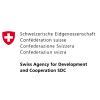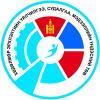Mongolia’s diverse landscapes provide habitats for a large number of plant and animal species. This biodiversity forms the basis Mongolia’s economy, culture and development. To conserve biodiversity, the government has established national and local protected areas on almost 30 percent of the country’s area. However, climate change and the exploitation of natural resources are the threatening the biodiversity and ecosystems of this extensive system of protected areas.
A large section of the rural population lives in buffer zones surrounding protected areas. If these zones are damaged, rural livelihoods are also affected. Based on this background, the German Agency for International Cooperation (GIZ) has been implemented the “Supporting Protected Areas for the Conservation of Ecosystem Services” (SPACES) project in collaboration with the Ministry of Environment and Tourism (MET), commissioned by the German Federal Ministry for Economic Cooperation and Development (BMZ) from 2019.
The SPACES project has four main components, one of which is the “Socio-Economic Analysis of the Baseline study” associated with the Livelihood components” conducted by the IRIM Research Institute between November 2020 and December 2021.
The aim of this research is to identify the current level of local livelihoods, their diversity, the main income sources of the local people, and people’s key challenge at the soum level and household level, respectively.
Related projects
-
Leveraging Science and Tradition in DRR in Mongolia III (LTS3), Final Evaluation
Client
International Organization for Migration
.png)

.png)

.png)
.png)
.jpg)




































